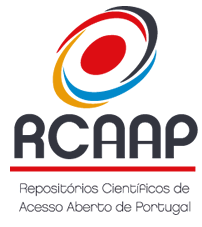Institution Day Care: A Study With Area Professionals
Keywords:
Day Care, Child Development, Education from 0 to 6 years of age, Day Care professionalsAbstract
The period from O to 6 years of age is a period of great changes for the child's physical, mental, social and emotional aspects. Such changes direct the later acquisition. We assume it is in this stage the child needs a better assistance, having well prepared people to promote this development. The focus of the work is the children's education at the Day Cares in the city of Londrina. The question which oriented all stages of the study, according to the Problematization Methodology, was the following: Which understanding does the day care professional have about his Institution, as well as his function? What they do and how they do to the child's development promotion? The purpose of the study was to analyse the understanding that the professionals, who work with children at these ages, have about the Day Care, the child's development, what they do and how they promote it. 24 professionals that work in the Day Care and with Day Care, either with children or with the coordination of this kind of Institution were the subjects of this research. We tried to study the problem through the literature about child's education and Day Cares, through the educational legislation, other official documents and interviews with professionals that work with such Institutions. The analysis of the results showed that the vision the people have about Day Care changed very little through the centuries, being still considered a social welfare work. This vision is justified for the fragility in the formation of these professionals. They do not have a clear vision of their role and function in the Day Care. They do not eveir know what to do and how to promote a child development.Downloads
References
BRASIL. Constituição, 1968. Constituição: república federativa do Brasil. Brasília : Senado Federal, 1988.
BUENO, Francisco da Silveira. Minidicionário da língua portuguesa. São Paulo : FTD, 1995.
CADERNO de Educação Infantil Estado do Paraná. Curitiba : Secretaria do Estado de Educação, 1994.
CAMPOS, Maria Malta et al. Creches e Pré-escolas no Brasil. São Paulo : Cortez, 1993.
CENTRO INTERNACIONAL DA INFÂNCIA. O desenvolvimento da criança do nascimento aos 6 anos. 3. ed. São Paulo: Pioneira, 1987. (Série Cadernos de Educação).
CIVILETTI, Maria Vittoria Pardal. O cuidado às crianças pequenas no Brasil escravista. Cadernos de Pesquisa. São Paulo, v. 76, p. 31-40. fev. 1991.
COMPANHIA BRASILEIRA DE METALURGIA E MINERAÇÃO. Fundação ABRINQ pelos direitos da criança: 10 medidas básicas para a infância brasileira. São Paulo: CBMM, 1994.
CONSELHO Nacional de Direitos da Mulher; Conselho Estadual da Condição Feminina. Creche urgente: organização e funcionamento 2. São Paulo: Conselho Nacional de direito da mulher. [19].
DROWET, Ruth Caribé da Rocha. Fundamentos da educação pré-escolar. São Paulo : Ática. 1990.
FERREIRA, Aurélio Buarque de Holanda. Minidicionário da língua portuguesa. 12.ed. Rio de Janeiro: Nova Fronteira, 1985.
NICOLAU, Marieta Lúcia Machado. A educação pré-escolar: fundamentos e didática. São Paulo : Ática, 1994.
OLIVEIRA, Marta Kuhl. Vygotsky: aprendizado e desenvolvimento, um processo sócio histórico. São Paulo : SCIPIONE, 1995.
OLIVEIRA, Zilma de Moraes Ramos (org.). Educação infantil: muitos olhares. 2.ed. São Paulo : Cortez, 1995.
PARANÁ, Conselho Estadual de Educação. Deliberação n. 034/93: normas para educação infantil no sistema estadual de ensino do Paraná. Curitiba : Conselho Estadual de Educação. 1993.
PARANÁ. Secretaria da Educação e Cultura - Ensino de 1º. e 2º. Grau. Curitiba: Fundepar. 1971.
REGO, Tereza Cristina. Vygotsky: uma perspectiva histórico-cultural da educação. Rio de Janeiro : Vozes, 1995.
SOUZA, Solange Jobim e; KRAMER, Sônia. Educação ou tutela? A criança de 0 a 6 anos. São Paulo : Loyola, 1988, (Coleção Espaço, v. 11).
Downloads
Published
How to Cite
Issue
Section
License
Semina: Ciências Sociais e Humanas adopts the CC-BY-NC license for its publications, the copyright being held by the author, in cases of republication we recommend that authors indicate first publication in this journal.
This license allows you to copy and redistribute the material in any medium or format, remix, transform and develop the material, as long as it is not for commercial purposes. And due credit must be given to the creator.
The opinions expressed by the authors of the articles are their sole responsibility.
The magazine reserves the right to make normative, orthographic and grammatical changes to the originals in order to maintain the cultured standard of the language and the credibility of the vehicle. However, it will respect the writing style of the authors. Changes, corrections or suggestions of a conceptual nature will be sent to the authors when necessary.













